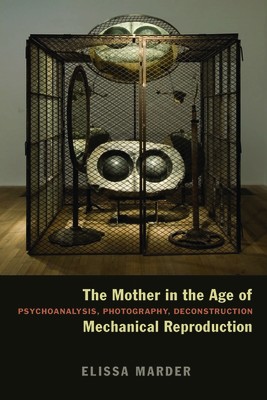
- We will send in 10–14 business days.
- Author: Elissa Marder
- Publisher: Fordham University Press
- ISBN-10: 082324055X
- ISBN-13: 9780823240555
- Format: 15.5 x 23.1 x 2.3 cm, hardcover
- Language: English
- SAVE -10% with code: EXTRA
Reviews
Description
This book grows out of a longstanding fascination with the uncanny status of the mother in literature, philosophy,
psychoanalysis, film, and photography. The mother haunts Freud's writings on art and literature, emerges as an obscure stumbling block in his metapsychological accounts of the psyche, and ultimately undermines his patriarchal
accounts of the Oedipal complex as a foundation for human culture. The figure of the mother becomes associated with some of psychoanalysis's most unruly and enigmatic concepts (the uncanny, anxiety, the primal scene, the crypt, and magical thinking). Read in relation to deconstructive approaches to the work of mourning, this book shows how the maternal function challenges traditional psychoanalytic models of the subject, troubles existing systems of representation, and provides a fertile source for nonmimetic, nonlinear conceptions of time and space.
unspeakable relation to our own birth and, in so doing, helps us give birth to new and fantasmatic images of futures that might otherwise have remained unimaginable.
EXTRA 10 % discount with code: EXTRA
The promotion ends in 13d.12:14:29
The discount code is valid when purchasing from 10 €. Discounts do not stack.
- Author: Elissa Marder
- Publisher: Fordham University Press
- ISBN-10: 082324055X
- ISBN-13: 9780823240555
- Format: 15.5 x 23.1 x 2.3 cm, hardcover
- Language: English English
This book grows out of a longstanding fascination with the uncanny status of the mother in literature, philosophy,
psychoanalysis, film, and photography. The mother haunts Freud's writings on art and literature, emerges as an obscure stumbling block in his metapsychological accounts of the psyche, and ultimately undermines his patriarchal
accounts of the Oedipal complex as a foundation for human culture. The figure of the mother becomes associated with some of psychoanalysis's most unruly and enigmatic concepts (the uncanny, anxiety, the primal scene, the crypt, and magical thinking). Read in relation to deconstructive approaches to the work of mourning, this book shows how the maternal function challenges traditional psychoanalytic models of the subject, troubles existing systems of representation, and provides a fertile source for nonmimetic, nonlinear conceptions of time and space.
unspeakable relation to our own birth and, in so doing, helps us give birth to new and fantasmatic images of futures that might otherwise have remained unimaginable.


Reviews